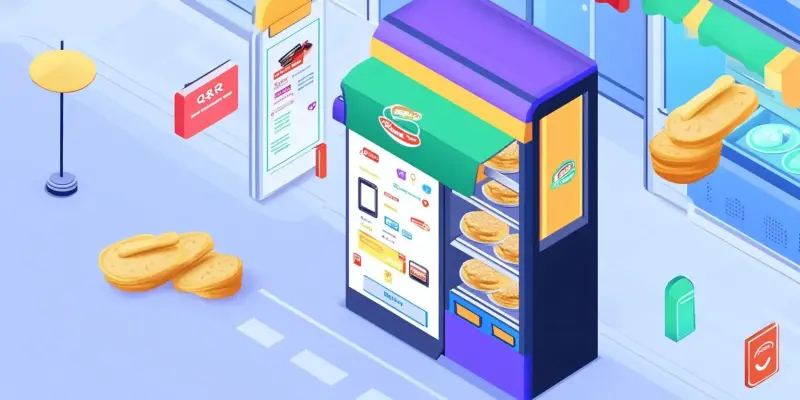In today’s fast-paced world, Quick Service Restaurants (QSRs) face an ever-evolving landscape where customer loyalty is both a critical asset and a formidable challenge. 88% of customers would abandon a trusted brand after just two negative experiences. This stark statistic underscores the gravity of maintaining positive customer experiences. For QSR brands, digital transformation has emerged as a pivotal instrument in safeguarding this precious loyalty. By leveraging technological advancements, QSRs can bridge operational gaps and ensure brand consistency, fundamentally enhancing customer satisfaction. Digitalization offers the promise of swift problem-solving and real-time monitoring, essential ingredients for creating a consistently positive dining experience.
Addressing Operational Gaps with Digitalization
In the era of digitalization, one of the paramount challenges for QSR brands is effectively utilizing operational data to improve customer experiences. While many restaurants have migrated towards adopting modern technologies, there is often a disconnect between collecting data and leveraging it meaningfully. Nick Mecozzi, SVP of Global Solutions Consulting at FranConnect, notes that by harnessing the power of analytics and AI-driven insights, brands can promptly identify and address operational inefficiencies. This proactive approach facilitates real-time actions to ensure that customer experiences remain consistently positive, thereby nurturing customer loyalty.
Digital solutions such as audits, daily checklists, logs, and incident tracking offer a holistic view of a QSR’s operations. Digitizing these elements enables efficient data gathering, leading to informed decision-making processes. Moreover, a mobile-first strategy significantly enhances this digital transformation. By adopting mobile-first tools, QSR operators can seamlessly conduct evaluations and manage tasks even in offline scenarios. This capability is particularly important for ensuring continuous operational excellence across locations and minimizing disruptions that could potentially affect customer experiences and loyalty.
Ensuring Brand Consistency Through Technology
One of the pivotal benefits of digitalization is the empowerment it offers for establishing brand consistency across all locations and delivery channels. Addressing operational gaps is only the beginning; the subsequent step is to harmonize customer experiences across the entire brand ecosystem. Utilizing tools like net promoter scores (NPS), QSRs can measure customer satisfaction levels and take targeted actions where necessary. For instance, locations with lower NPS scores can be segmented and provided with tailored playbooks to enhance their ratings.
Playbooks serve as strategic guides for implementing uniform initiatives across the organization, such as rebranding or launching new menu items. These detailed plans ensure that every location follows a standardized approach, resulting in a cohesive brand image and customer experience. Through real-time monitoring and swift execution of these playbooks, QSRs can optimize overall store performance, thereby fostering a loyal customer base. The effectiveness of digitalization lies in its ability to not only identify discrepancies but also offer actionable solutions to align all operational facets with the brand’s core values.
Proactive Management of Customer Experiences
A comprehensive digital strategy is a blueprint for QSR brands aiming to sustain and enhance customer loyalty. By leveraging digital tools, brands can shift from reactive to proactive management of customer experiences. This proactive stance involves anticipating potential issues and addressing them before they escalate, thereby maintaining a seamless customer journey. With real-time analytics and feedback mechanisms, QSRs can dynamically adapt to customer preferences and emerging trends, ensuring that their offerings remain relevant and attractive.
Furthermore, digitalization allows for personalized customer interactions, another key element in fostering loyalty. By analyzing customer data, brands can tailor their communication and offers to individual preferences, creating a more engaging and satisfying experience. This personalized approach not only strengthens the emotional connection with customers but also builds long-term loyalty. In essence, digitalization equips QSRs with the tools needed to exceed customer expectations consistently, turning satisfied customers into brand advocates.
Future Considerations for Digital Integration
In today’s fast-paced and ever-changing world, Quick Service Restaurants (QSRs) encounter an ongoing challenge in maintaining customer loyalty, a crucial asset. A striking statistic reveals that 88% of customers would abandon even their most trusted brand after just two negative experiences. This emphasizes the key importance of providing and sustaining positive customer experiences. For QSR brands, embracing digital transformation has become an essential strategy in preserving customer loyalty. By utilizing technological advancements, QSRs can address operational shortcomings and maintain brand consistency, thereby significantly improving customer satisfaction. The promise of digitalization lies in its ability to offer rapid problem-solving and real-time monitoring, both of which are vital for ensuring a consistently positive dining experience. In essence, integrating digital solutions not only helps in avoiding pitfalls that lead to customer dissatisfaction but also reinforces customer trust and long-term loyalty, making it indispensable in today’s competitive QSR industry.

